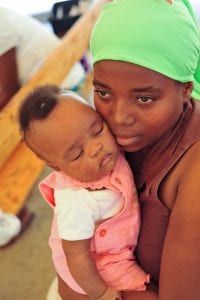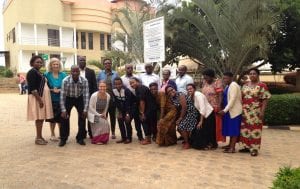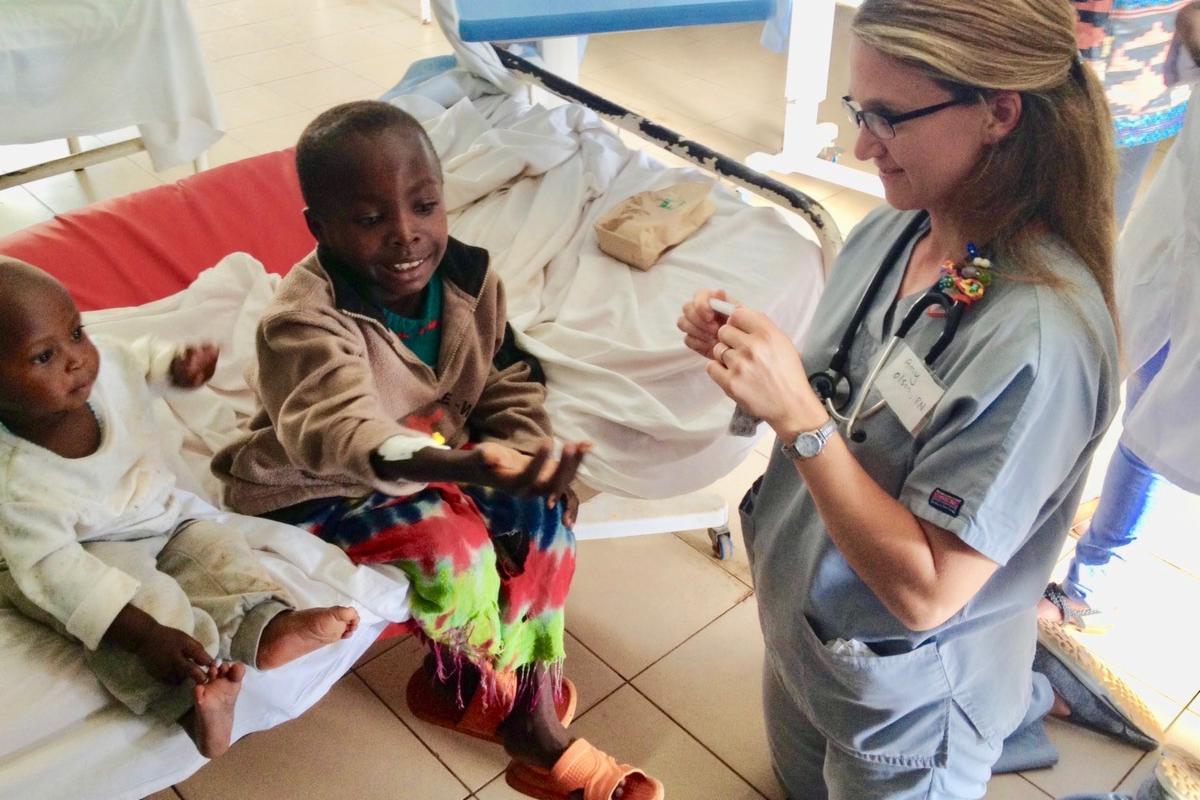Taking the classroom to rural Africa
Kigali, Rwanda is about as far away as one can get from the BCIT Burnaby campus. Despite the distance and cultural differences, the curriculum that future pediatric and neonatal nurses are studying in Rwanda looks strikingly similar.
Since 2012, the BCIT Specialty Nursing programs for Neonatal and Pediatric nursing has partnered with Western University in London, Ontario, the Kigali Health Institute, and the University of Rwanda to bridge the recently identified educational gap in maternal, newborn, and child health in Rwanda. This partnership stems from the World Health Organization’s mandate to reduce child and infant mortality rates in developing countries.
Adapting the curriculum to meet third-world needs

A Global Fund assessment of health-care quality recently identified gaps in the education of health professionals to treat patients in rural areas. The partnership was developed to tackle three objectives that emerged from the assessment – strengthen midwifery and pediatric nursing program, develop continuing professional education programs, and policy development. To this end, BCIT Specialty Nursing shared its curriculum with their Rwandan partners and BCIT faculty are working with the Rwandan nurses and educators to adapt the Canadian curriculum to the context of health care in Rwanda.
“Our curriculum teaches a westernized model of health and well-being and issues here, like obesity, are not pediatric issues in Rwanda. So the curriculum needs to be modified to reflect not only health issues encountered in developing nations, like malnutrition, but also to reflect the cultural values and beliefs of the Rwandan people,” says Tara Hodgson, Pediatric Specialty Nursing program head.
Students learn how to follow best practice guidelines and to be pragmatic with the resources they have, even if that means that their practice doesn’t always match with the best practices followed in the western world.
“It is important to understand that at times and particularly in rural areas, basic resources can be very limited. We have to understand this and teach them how to follow best practice guidelines to the best of their ability with the supplies and means available, it is a big shift in thinking for us in the west,” shared Tara.
On the ground in Rwanda

In 2013, Treena Cardiff, Program Head for Neonatal Specialty Nursing, and Tara Hogson travelled to Rwanda to work with members from Western University, Kigali Health Institute and the National University of Rwanda in developing a post-graduate specialty diploma in specialty nursing. Classes began for the first group of students in September 2013 and now, five years in, the University of Rwanda is ready to take on full control of their program as those first students are now trained as the instructors teaching new groups of nurses.
At the same time, BCIT Specialty Nursing student (now an alumna), Amy Olson, was making her own plans for work in Rwanda. Her husband had accepted a position at The Wellspring Academy in Kigali and Amy was eager to help the country she would soon be living in. With a serendipitous colliding of two similar goals, Amy teamed up to be BCIT Specialty Nursing’s ‘person on the ground’ to teach and run the courses in Kigali.
Amy’s biggest joy in Rwanda comes from knowing that “because we are training the nurses and doctors who will stay in country, we are doing sustainable work that can have an effect long term”.
The proof is in the numbers
Over the past few years the infant mortality rate in Rwanda has dropped from 50 per 1000 live births in 2010, to 28 in 2015 due to the combined efforts of the Ministry of Health, Government, and countless NGOs. “This partnership and others like it are literally saving children’s lives,” says Treena.
In a country still recovering from the genocide of 1994, students are eager to further their education and make meaningful and lasting impacts in their communities. Finding solutions to challenges like electricity brown outs and lack of consistent internet access, students rely on external flash drives for offline access to much of the coursework with the ability to upload assignments when they are able.
Students from all over Rwanda, from large urban hospitals and from small rural clinics, enroll to study pediatric and neonatal nursing. These students are able to learn where they are and directly apply their knowledge to work with vulnerable mothers, babies, and entire families in their home communities.
Sharing the Specialty Nursing program curriculum and working with the nurses in Rwanda has been a rewarding journey. The BCIT’s Specialty Nursing team is excited to see this project reach its fulfillment as they work towards better pediatric and neonatal health on either side of the globe.

Great to hear how things are going with this program.
Keep up the good work Amy!
Wow, This is amazing, great work. Taking knowledge from what we have in western society and educating those in leadership roles to foster improvement in health care with so few resources. This is a true example of bridging the gap. Well done
Fairouz